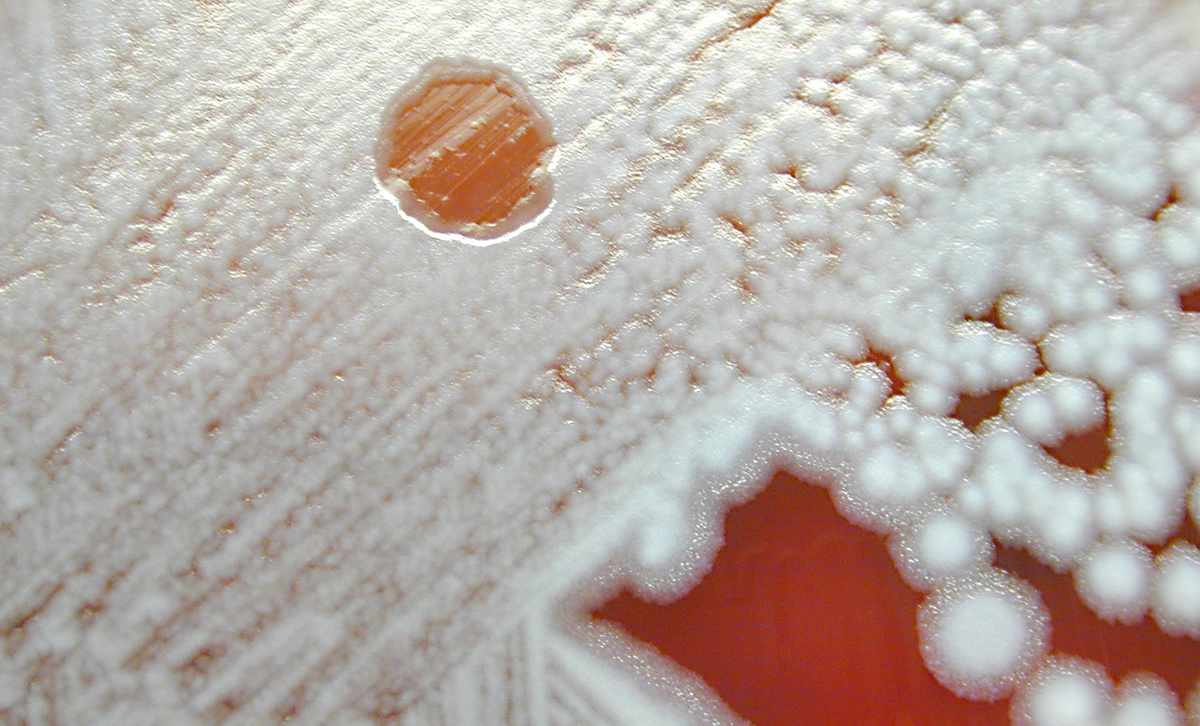- Home
- Transfer
- Transfer examples
- Advances in Phagen-Therapy: Researchers demonstrate broad efficacy against MRSA bacteria
Advances in Phagen-Therapy: Researchers demonstrate broad efficacy against MRSA bacteria

18.01.2021
Bacteriophages are special viruses that attack only bacteria and can therefore provide an alternative to antibiotics. A team of Austrian, German and Swiss researchers has now shown for the first time that specifically cultivated phages are significantly more effective against multi-resistant germs than known wild types. The results of the joint research work have now been published in the journal "Pharmaceuticals" (DOI: 10.3390/ph14040325).
"ε² - Evolution squared" is what the Austrian company PhagoMed Biopharma calls its cultivation of "bacteria-eating" viruses to combat methicillin-resistant staphylococci (MRSA). Therapy with the so-called bacteriophages has for some time been considered a promising option for the treatment of difficult-to-treat infections with multi-resistant bacteria. They act much more specifically on the disease-causing bacterial species and can bypass typical bacterial resistance mechanisms. Especially on biofilms - a kind of protective mucus that bacteria form around themselves - phages often remain significantly more effective than antibiotics.
However, the high specificity of phages has also been their greatest disadvantage up to now: "Bacteriophages are so precisely adapted to their host bacterium that even closely related strains of the same bacterial species are no longer attacked by them. Until now, people have tried to get around this by cleverly mixing naturally occurring phages. Even in favorable cases, this phage mixture often only works on half of all target bacteria, and in the worst case, it only works on a single strain out of hundreds," explains InfectoGnostics researcher Prof. Ralf Ehricht, who was involved in the study with his team from the Leibniz Institute for Photonic Technologies Jena and Friedrich Schiller University Jena.
Cultured bacteriophage cocktail effective against more than 100 bacterial strains
To grow viruses optimally suited for therapeutic use, PhagoMed's developers used evolutionary mechanisms: they crossed different phages and selected those that could attack the broadest possible spectrum of bacterial strains. Together with the Jena campus researchers and other partners, they tested a mixture of the phages bred in this way on 110 staphylococcal strains. The researchers had selected these bacterial strains in advance and analyzed them extensively - 43 percent of them were already multidrug-resistant MRSA variants. The result after treatment with the cultured phages: growth was successfully suppressed in 101 of the 110 bacterial strains. "This is a major advance for phage therapy, bringing it into focus as a serious alternative to antibiotic treatment of MRSA infections in some disease patterns," said Ralf Ehricht, assessing the results of the study.
In addition, other partners of the InfectoGnostics research campus in Jena are already working on gene analysis of bacteriophages: for example, the young startup company Nanozoo has already developed a new bioinformatics tool called "What the Phage" together with academic campus partners from Jena University Hospital and Friedrich Schiller University Jena, which for the first time enables user-friendly analysis of phage gene sequences. The free open-source program can be used to identify phages in sequence datasets that could also be suitable for therapeutic application against suitable host bacteria.
